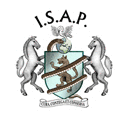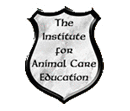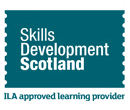
The study of amphibians and reptiles is a subject that has been asked about frequently and finally this course is available. It deals with the characteristics, biology, interesting facts and some behaviour of these creatures, some of which are commonly known and others that are quite rare and strange.
This course only deals with these fascinating creatures in their wild habitats, a separate course, the Herptile Care Diploma deals with their husbandry in captivity. The Herptile Care course is divided into 2 smaller courses called: Amphibian Care and Reptile Care.
Course Modules
1. Frogs and Toads
- An introduction to herpetology
- Introducing the amphibians and their characteristics
- Frogs and toads - body form and methods of locomotion, a comparison between them
- Breeding and the different methods of reproduction used by frogs and toads
- The development from tadpole, through metamorphosis to the adult form
- Feeding, and the ways that frogs and toads catch prey
- Defence and escape, including camouflage and the unken reflex, and mimicry
- Poisonous frogs and toads
- Conservation of frogs and toads
2. Salamanders, Newts and Caecilians
- More amphibians, introduction to the salamanders and caecilians and their body forms
- Breeding and reproduction of salamanders and caecilians their different methods in different species
- Feeding and the way they catch prey
- Social behaviour in salamanders
- Defence and escape
- Conservation
3. Lizards and Amphisbaenids
- The history of reptiles
- An introduction to the lizards and their body forms
- The reproductive methods used by lizards, and parental care in some species
- Thermoregulation in lizards and the importance of environmental temperature
- Feeding and hunting for prey
- Defence and escape
- An introduction to worm-lizards and their anatomy and physiology
- A comparison between lizards and worm-lizards
4. Snakes and Tuataras
- The body form and anatomy of snakes
- Different types of locomotion used by different species of snake
- Breeding
- Feeding and hunting, including constriction and evenomation
- The different categories of venomous snakes
- Defence and escape
- Snakes and humans and their relationship
- The tuatara and its environment
- Conservation issues
5. Turtles
- Introduction to the turtles and their origins
- The body form and anatomy of turtles
- The physiology of turtles
- Temperature regulation
- Social behaviour and courtship
- Reproduction and the laying of eggs
- The giant tortoises
- The Leatherback turtle and its physiological differences from other species
- The snapping turtles
- Turtles and man, and conservation issues
6. Crocodilians
- An introduction to the crocodilians and their evolution
- The body form and anatomy
- Physiology and temperature regulation
- Reproduction and parental care of the young
- Communication and social behaviour
- Feeding and hunting
- Crocodilians and man and conservation issues
- The different species of crocodilians and their distribution
Study Level 2The study Level relates to the how demanding the course is. 1 is beginner and 5 is HND / Foundation Degree level.
6 Module CourseThis course is delivered in 6 study modules which need to be passed to gain the qualification.
All Compass Education Ltd coursesare written by industry experts and provided exclusively in the UK by Compass,they are not available anywhere else. Courses are unique to Compass andaccredited by Ofqual regulated Awarding Bodies and/or Industry ProfessionalBodies as indicated in each course description. In common with the overwhelmingmajority of private educational provision in this sector they are not a part ofthe RQF or SCQF and they do not appear on Ofqual's register of qualifications.
Reviews
No reviews were found.



